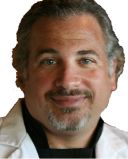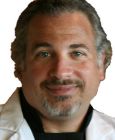Diet
Culinary Medicine: Beyond the Evidence
Part II: Black swans, incompleteness theorem, loop quantum gravity, and more.
Posted February 3, 2020 Reviewed by Daniel Lyons M.A.
“I regard consciousness as fundamental. I regard matter as derivative from consciousness. We cannot get behind consciousness. Everything we talk about, everything we regard as existing, postulates consciousness.”
-Max Planck (from a quote in the Observer, 1931)
In my previous column, "Culinary Medicine: A new frontier for innovation, integration, and implementation," the discipline of culinary medicine was defined as "The multidisciplinary application of evidence-based decision making in the selection of ingredients and techniques used in preparing foodstuffs with a goal of achieving and maintaining health and wellness through an optimized food experience.”
One of the key features of Culinary Medicine, as taught at the University of Montana, is the focus on a multidisciplinary and evidence-based approach. This means that the course includes information derived from a diverse background of disciplines that each affect our food choices and their impact upon our health and wellness to varying degrees. The information and the conclusions drawn from these data sets are evaluated with a keen eye upon making sure that the facts as represented meet the standards of adequate scientific inquiry and statistical validity.

And yet, that cannot be the complete equation. If it were, we would need only a pursuit like nutrition. For nutrition, one may argue, can tell us everything about the food we eat-except for why the experience is wonderful.
Increasingly, in fields of study such as medicine and many other areas, there is growing pressure to express results of intervention or observation in terms of statistically valid findings that then lend themselves to the incorporation of so-called “best practices algorithms.”
Such sets of rules incorporate the huge amounts of information now available (so-called big data) into what ultimately become individual mandates, treatments, and recommendations. In general, the process we are confronted with consists of situations in which we describe and classify an observation, identify relevant associations, and then define (presumptive) causal relationships.[i]
Mathematics is the language we use to tell the story. We use mathematics precisely because of its perceived unambiguous nature. But that is a deception.
In any scientific endeavor, there are two types of uncertainty; quantifiable and unquantifiable.[ii] Often, we are confronted with circumstances in which we have neither the knowledge base nor technology to address unquantifiable uncertainties. These cannot be solved with statistics or any form of probability mathematics.
This difficulty can be expressed in The Black Swan Theory (including both problems of induction and meta-probability). Unquantifiable uncertainties involve problems for which no relative frequency can be accessed. Imagine a scenario of having only seen white swans your entire life, you will one day see a completely black swan. What is the probability, frequency, timing, predictability, or likelihood of that event? How do you, can you, forecast such an event — let alone declare with any degree of certainty a time and location?
In such cases, the constancy of the world is not a tenable assumption and there is no relevant prior experience to use in shaping a relative-frequency-based concept of the probability that such events could occur.
All swans are obviously white until we encounter our first black swan. In science and medicine, we may reasonably think we completely understand some well-studied diagnostic or therapeutic issue until some new findings are obtained that do not fit our current model.[iii]
The belief that all our answers, that a singular “truth” could be expressed by Science in the language of purely objective mathematics, was partially answered by Kurt Gödel; an Austrian logician born in 1906. His famous Theorems of Incompleteness demonstrate quite conclusively in their proof “that in any axiomatic based formal system F within which a certain amount of arithmetic can be carried out, there are statements of the language of F which can neither be proved nor disproved in F.”[iv] It is the reality that within any data set (from which our ‘evidence-base’ is ultimately derived) there exists a certain degree of unquantifiable uncertainty.[v]
As “The Language of the Universe,” it is by no means a coincidence or oddity that such a mathematical proof exists. For when we examine the nature of reality as expressed in loop quantum gravity theory and as elucidated by Carlo Rovelli, we find that indeterminacy (unquantifiable uncertainty) is one of the fundamental features of the Universe in which we exist. The events of the Universe, like our individual response to the food experience, cannot be predicted in an unequivocal way.[vi]
We are not inextricably bound to respond slavishly to a set of axiomatic algorithms. Indeed, the very use of “big-data” in producing these directives invokes the ecological fallacy. This is a situation where the trends exhibited by large populations fall completely apart when applied to the individual (for a more detailed explanation, see Fallacy of The Calorie). Following a fixed set of directives is no more a path to ultimate “truth” than the converse.
We are more than “logic-engines.”
Within the framework that is our reality, we must understand that as we delve ever deeper in our quest for Understanding (as we should, applying those ‘evidence-based’ lessons appropriately along the way), we must also become comfortable with Uncertainty. That is the flip side of our approach to Culinary Medicine, to not only understand but embrace that unquantifiable uncertainty.

It is the spark that ignites dreams of pleasure for one about a simple sun-kissed tomato fresh out of the garden in the summertime, and the swoon for pasta with red sauce served with local white wine in an ancient stone café overlooking the Mediterranean in another. In both cases; it is about much more than a tomato; and so are the long-term effects.
This aspect of our food experience, of our relationship with food (and with each other and the world at large); this unquantifiable uncertainty is a fundamental construct of our personal reality.
And at the end of the day, it is our personal reality that defines us, but that's another entrée at the table of ideas!
References
Endnotes
[i] Mark, Daniel B. Statistical Concepts for Clinicians in American College of Cardiology CathSAP. Washington, DC: American College of Cardiology, 2019.
[ii] Weisberg HI. Willful Ignorance: The Mismeasure of Uncertainty. New York: Wiley; 2014.
[iii] Mark DB, Lee KL, Harrell FE Jr. Understanding the role of p values and hypothesis tests in clinical research. JAMA Cardiol 2016;1:1048-54.
[iv] Raatikainen, Panu. Gödel’s Incompleteness Theorems. Stanford Encyclopedia of Philosophy. Retrieved from https://plato.stanford.edu/entries/goedel-incompleteness/#FirIncThe; 2019.
[v] Nagel, E. & Newman, JR. Gödel’s Proof. New York: New York University Press: 2001.
[vi] Rovelli, Carlo. Reality is not what it seems: The Journey to Quantum Gravity. New York: Riverhead Books; 2017.




